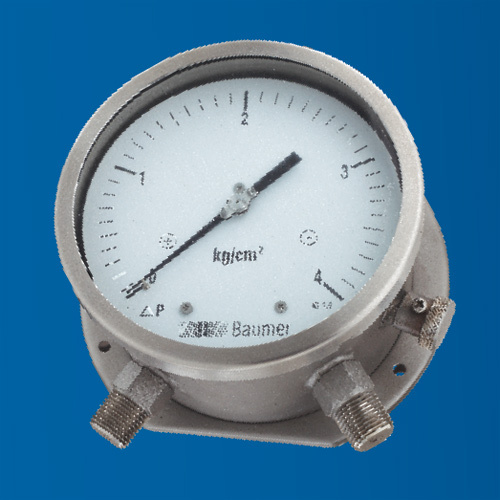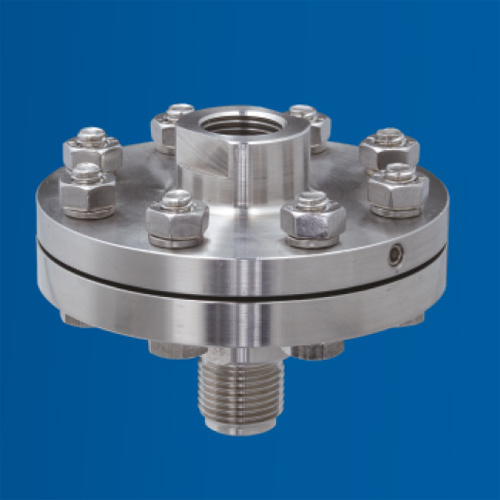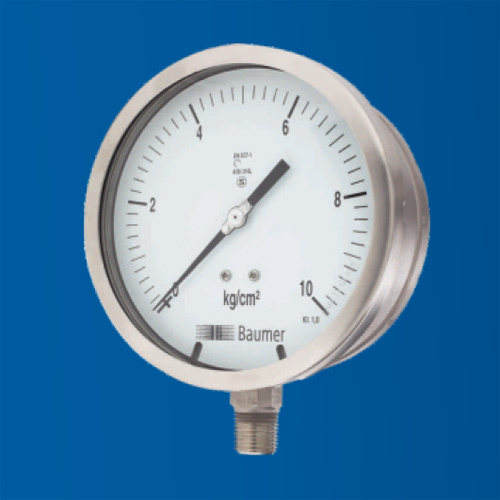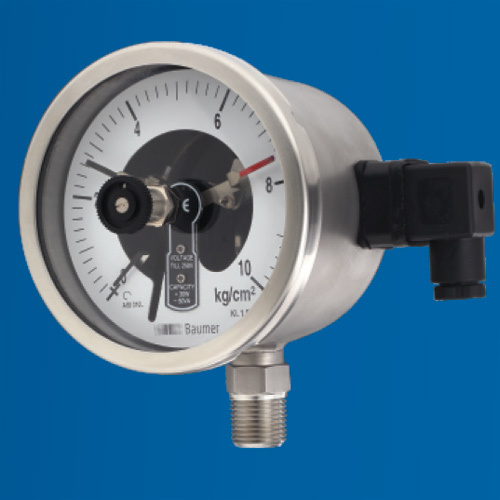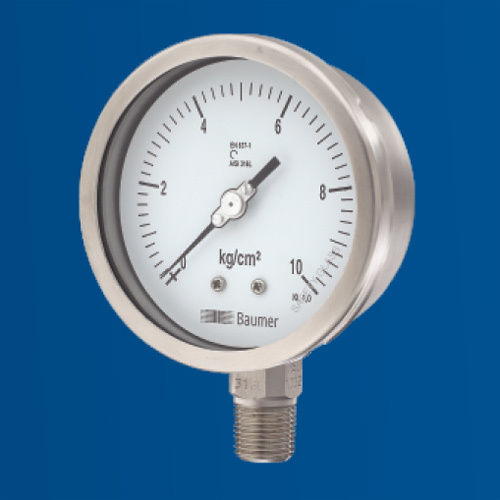
Stainless Steel Pressure Guage
750 INR/Unit
Product Details:
- Operate Method Semi Automatic
- Material Testing & Measuring
- Test Range Accurate / Normal
- Usage Industrial
- Control Mode Manual
- Click to View more
X
Stainless Steel Pressure Guage Price And Quantity
- 10 Unit
- 750 INR/Unit
Stainless Steel Pressure Guage Product Specifications
- Manual
- Testing & Measuring
- Accurate / Normal
- Semi Automatic
- Industrial
Stainless Steel Pressure Guage Trade Information
- hajira,porbandar
- Cash in Advance (CID)
- 100 Unit Per Month
- 10 Days
- as per product
- All India
Product Description
A stainless steel pressure gauge is a type of pressure measuring instrument that is designed with stainless steel components particularly for the parts exposed to the process fluid or environment Heres a detailed overview of its construction features and applications
Construction
1 Case and Internals
Stainless Steel Case The outer casing of the gauge is typically made from stainless steel This provides durability and resistance to corrosion making it suitable for a wide range of industrial and process environments
Stainless Steel Internals Components such as the bourdon tube the mechanical element that converts pressure into movement and other internal parts exposed to the pressure medium are also made from stainless steel This ensures compatibility with various fluids and gases without risk of contamination or degradation
2 Pressure Sensing Mechanism
Bourdon Tube This is the most common type of pressure sensing mechanism used in mechanical pressure gauges It is a curved tube that tends to straighten under pressure which is then mechanically linked to a pointer on a dial to indicate pressure
Movement and Pointer The movement of the bourdon tube due to pressure changes is translated into a rotational movement of a pointer on a dial face calibrated in pressure units psi bar kPa etc
3 Dial and Scale
Scale Calibration The gauge is calibrated to display pressure readings accurately across a specified range Different scales and units can be used depending on the application and region
Visibility The dial typically has clear markings and a pointer that moves smoothly over the scale allowing for easy reading of pressure values
Features and Benefits
Corrosion Resistance Stainless steel gauges are highly resistant to corrosion making them suitable for use in corrosive environments such as chemical plants marine applications and offshore platforms
Durability They are robust and can withstand high pressures and temperature fluctuations without compromising performance
Accuracy Stainless steel pressure gauges are known for their accuracy and reliability in measuring pressure within specified tolerances
Versatility They can be used with a wide range of fluids and gases including aggressive or corrosive substances
Applications
Stainless steel pressure gauges find application in various industries and sectors including
Oil and Gas Monitoring pressures in pipelines refineries and offshore drilling platforms
Chemical Processing Measuring pressures in chemical reactors tanks and processing equipment
Food and Beverage Used in sanitary applications where cleanliness and resistance to corrosion are critical
Pharmaceuticals Ensuring precise pressure control in manufacturing processes
Considerations
Pressure Range Choose a gauge with a pressure range suitable for the specific application
Environmental Conditions Consider factors such as temperature vibration and exposure to corrosive substances when selecting a gauge
Certifications Depending on the industry ensure the gauge meets relevant standards and certifications for safety and performance
In summary stainless steel pressure gauges are essential instruments for accurately measuring and monitoring pressure in demanding industrial environments offering durability reliability and corrosion resistance
Enter Buying Requirement Details
Other Products in 'Pressure Measurement Instrument' category
UMIYA INSTRUMENTS
GST : 24AAAFU4821B1ZR
GST : 24AAAFU4821B1ZR
G-5, Shree Narmada Arcade, Old National Highway No-8, Near Kotak Mahindra Bank, Ankleshwar - 393002, Gujarat, India
Phone :07317126536
 |
UMIYA INSTRUMENTS
All Rights Reserved.(Terms of Use) Developed and Managed by Infocom Network Private Limited. |


